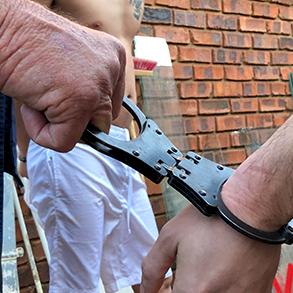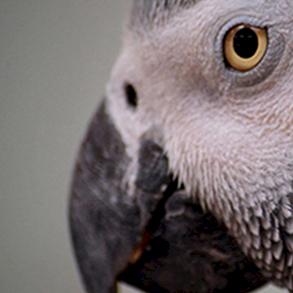
spreading the word about wildlife trade issues
Wildlife trade is a complicated issue. And one that is very often misunderstood.
We're putting wildlife trade issues back on the agenda where they matter most. From running public awareness events at airports to organising outreach programmes. All with a view to informing key (potential) players within wildlife trade chains about the importance of legality and sustainability.
providing training, tools, and events for key stakeholders
A key aspect to many of our projects involves sharing our wildlife trade expertise with partners, civil society, or government agencies.
Whether this be leading timber identification training for customs officers in Cameroon or running behavioural change events with Vietnamese civil society organisations, education, training, and outreach events ensure relevant stakeholders are equipped with the latest insights on how best to respond to illegal or unsustainable wildlife trade.
An International Conference to Reduce Demand for Illegal Wildlife Products organised by TRAFFIC was the largest event of its kind, bringing together over 100 participants
i
a selection of projects running outreach events and training
People not Poaching
The People Not Poaching online learning platform aims to support community-based approaches to tackling illegal wildlife trade (IWT). With contributions from practitioners and communities, we aim to gather a global evidence base that will build awareness and knowledge-sharing about community approaches to reducing IWT. People not Poaching is a joint project between the IUCN CEESP/SSC Sustainable Use and Livelihoods Specialist Group (SULi), The International Institute for Environment and Development (IIED) and TRAFFIC.
Wildlife Forensic Science
Wildlife forensics provides scientific evidence to inform investigations into crimes against wildlife, focusing on determining the identity of poached or illegally traded wildlife products, and addressing questions relating to the species, and geographic origin of samples.
We work with partners to increase the capacity of countries to conduct forensic analysis and ensure samples aid in detection and prosecution of wildlife crimes.
Wildlife TRAPS
In 2020, the Wildlife TRAPS Project - a long-running partnership funded by USAID and implemented by TRAFFIC in collaboration with IUCN – shifted direction while continuing to pursue innovation and non-traditional partnerships to reduce illegal, unsustainable, and unsafe wildlife trade.
In this new phase, Wildlife TRAPS is building on strong collaborations already developed with key actors in the transport, finance, wildlife forensics, and behavioural change sectors to inform a more singular focus on reducing potential zoonotic disease risks associated with trade in wild animals.
China's Champions of Change
Unsustainable consumer demand for wildlife products is a leading cause for the threats facing many species across the world.
China's Champions of Change is supporting the Chinese government in working to reduce the motivation behind the consumption of illegal or endangered wildlife products, specifically pangolin and rosewood.
Restore Species
Worldwide, species are affected by direct threats related to trade, hunting and poisoning, which have decimated wildlife populations, and placed countless species at risk of extinction.
BirdLife International, Fauna & Flora International (FFI), TRAFFIC, and the Wildlife Conservation Society (WCS) have joined forces to tackle these direct threats that threaten the survival in the wild of some of the world’s most vulnerable species.
FairWild
The FairWild Foundation was established in 2008 to promote the sustainable use of wild-collected plant ingredients in trade.
It guides the implementation of responsible resource management and guiding business in sustainable harvesting techniques, alongside spreading awareness of the need for sustainability in wild plant consumption amongst consumers.
ROUTES Partnership
The Reducing Opportunities for Unlawful Transport of Endangered Species (ROUTES) Partnership brings together government agencies, transportation and logistics industry companies and representatives, international conservation, development and law enforcement organisations and donors in order to disrupt wildlife trafficking by air.





